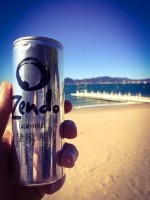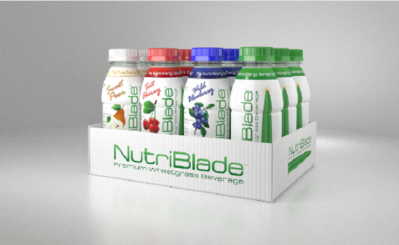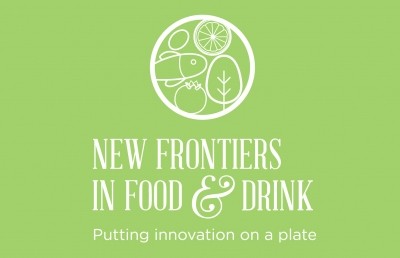Dispatches from Food Vision 2016
Start-ups are inventing the future & big business needs to partner now: Unilever Foundry creator
This content item was originally published on www.foodnavigator.com, a William Reed online publication.
Addressing delegates at Food Vision in Cannes last week, Basset said inspiration for creating the incubator came with the realisation that global giant Unilever was missing out. “We were entrepreneurial but not entrepreneurs, and it didn’t matter what idea we came up with, someone in the world was already [doing] it,” he said.
The answer was to set up The Foundry, a platform designed to connect the company’s brands with innovative start-ups from around the world. It has a four-step process, from the brief to the pitch, and then from pilot scheme to a partnership. So far it has invested €18m ($20m) in 95 pilot schemes, of which almost half (45) have been scaled up.
Within a massive multinational company that employs 171,000 people, Basset said the Foundry has managed to ignite a sense of experimentation and changed the mind-set from the staid, old ‘plan and perfect’ to a dynamic ‘launch and learn’.
‘We learn from each other’
The three winners of the Trailblazers contest hosted by Unilever and Food Vision shared their experiences of transforming an idea to finished product - in this case, whey-based ice cream, an organic wheatgrass supplement and a herbal relaxation/concentration drink - and the benefits of partnering with big business.
For David Hastie, the Scottish founder of Nutrifiz effervescent wheatgrass, the benefits are two-way. “I’m still learning about the regulations and legislation [on] health claims, packaging and hygiene certifications. The larger companies already have all that experience as well as the man hours and resources to go to. But one thing they don’t have is the flexibility to be innovative in the way we do (…). We learn from each other.”
Meanwhile Laurent Karim of Brussels-based Zendo focus drink said larger corporations can benefit from the personal stories underpinning a start-up’s journey that resonate well with today’s consumers.
Wheyhey protein ice-cream co-founder, Irish Londoner Damian Kennedy, said the R&D and product innovation of a food giant were of great value to start-ups. “You guys have a whole team built into that. Our innovation is - I’m sitting in the bath and I have an idea. I go into the office the next day and try it in the kitchen. If it works we test it on friends. Your expertise, [product] innovation and distribution are huge.”
Rethink the dialogue: ‘These are not traditional partners’
For companies eager to try it out, Basset’s keypiece of advice is to keep an open mind. “Don’t be too defined by who you should be talking to. These are not traditional partners where you give a specific brief and you get a specific solution back. The world is moving far faster than that and we have to give room to the inspiration that can come through having a much more open dialogue.”
But with the most optimistic estimates suggesting that four out of every five start-ups end in failure, how can companies identify the real deal amid the buzz?
Basset told Food Vision not to aim for “the two guys in their garage” but rather companies with proven tech and a first round of funding under their belts that are ready to be scaled.
While opportunities to explore partnerships with start-ups in the earlier stage still exist, collaboration might not take place until six or 12 months later. “We’re working with the one company that has succeeded rather than talking to all five,” Basset said.
New opportunities don’t involve equity
The rise of the start-up has also brought with it a new growth model. While acquired growth remains an important way to expand into new segments, Basset said, leverage growth – when two organisations come together to combine the agility of start-ups with the size and capability of a large enterprise for mutual benefit – deserves much more exploration.
This new growth model should also be taking place alongside other operational changes. “For many years we’ve been in this mind-set of closed and secretive and ‘We need to own everything’. [But] in the new world where we’re moving from organisations of people to networks, we have to get good at working in a way that’s sustainable for the network,” said Basset.
In practical terms, this means that Unilever rarely owns the intellectual property - often this is already owned by the start-up at the scale-up stage - nor does it tend to ask for exclusivity as this would prevent the start-up from further developing the tech. "We licence it or leverage it via our normal supplier agreement. We'd rather scale it than suffocate it with IP ownership," he said.
According to Basset, the need for collaboration goes beyond the drive to do business – it’s about industry-wide responsibility. “As an industry and especially as a company we have a responsibility to raise the next generation of partners, whether that’s working with scalable partners or helping to incubate earlier-stage entrepreneurs.”
Unilever's 15-year old investment arm - Unilever Ventures - did the equity deals and had a great reputation because "it supports entrepreneurs," Basset added.
Food Vision Asia 2016
Didn't make it to Food Vision in Cannes? Food Vision Asia will be taking place in Singapore from 27 - 29 April 2016 - book your place here.












